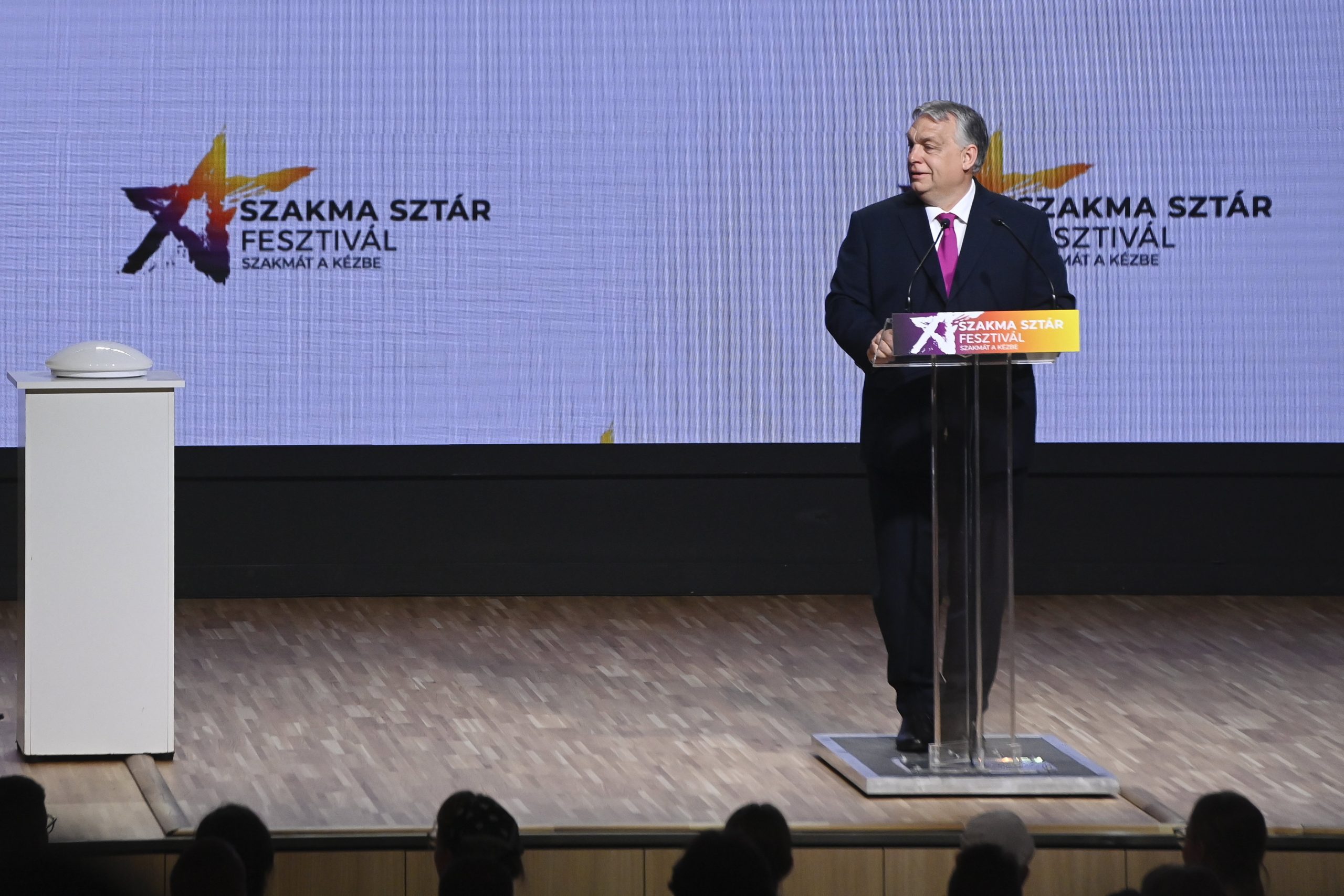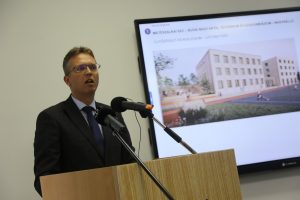
The number of people enrolling in vocational education and training has been increasing for years, and the students' academic results are also improving.Continue reading

A total development program of HUF 96 billion (EUR 247 million) is underway to take Hungary from second place in the European Championship of vocations to the World Championship title, said Balázs Hankó, State Secretary for Higher Education, Innovation, Vocational Training, and Adult Education. He said that the Hungarian vocational training boom had become both attractive and innovative, Világgazdaság reports.
Balázs Hankó announced in Mátészalka (eastern Hungary) that a vocational training center is being renewed with HUF 7.5 billion (EUR 19.3 million) as part of a comprehensive program.
The program will renew the entire Hungarian vocational education and training system with HUF 96 billion at 34 sites of 31 vocational training centers.
The State Secretary noted that they aim to “build 21st century vocational education and training, with which we want to shape not only the present but also the future.”
He said that Hungarian vocational education and training had won a silver medal in the European Championship of vocations, which clearly shows the strength of the sector. Hungarian young people are therefore destined for success, and the task is to help them achieve it.
In Mátészalka, for instance, the development of the program, funded with eight percent of the total program budget, has made it possible to build a new dormitory, extend buildings, create classrooms, and purchase equipment to support training.
Hankó also explained what he considers to be the main strengths of vocational training in Hungary. He said that Hungarian vocational education and training has become both attractive and new, as illustrated by the fact that six out of ten young people choose vocational education and training institutions for their further education.

Balázs Hankó. Photo: Facebook/Simon Miklós országgyűlési képviselő
He said that our vocational education and training, because of its dual nature, works with the economy and listens to its needs, and provides a way forward for disadvantaged young people, for instance through the apprenticeship and workshop school programs. As he said, it also cooperates with higher education, which is looking for young people with a vocational qualification and a certificate.
János Rostás, chancellor of the Mátészalka Vocational Training Center, added that
the development is expected to be completed by the end of 2025, and funded by the European Union’s Recovery and Resilience Facility (RRF).
The project will start in the center’s institutions in Nagykálló and Mátészalka (both in easter Hungary). The former will have a new dormitory building and more classrooms for students, while the latter site will also see an extension of its building and workshop wing.
Via Világgazdaság, Featured image: Pexels